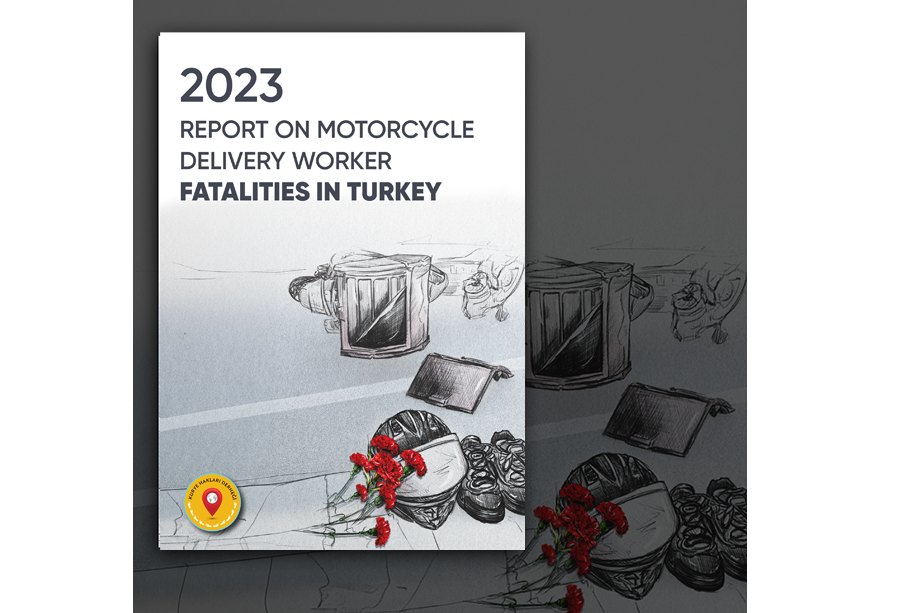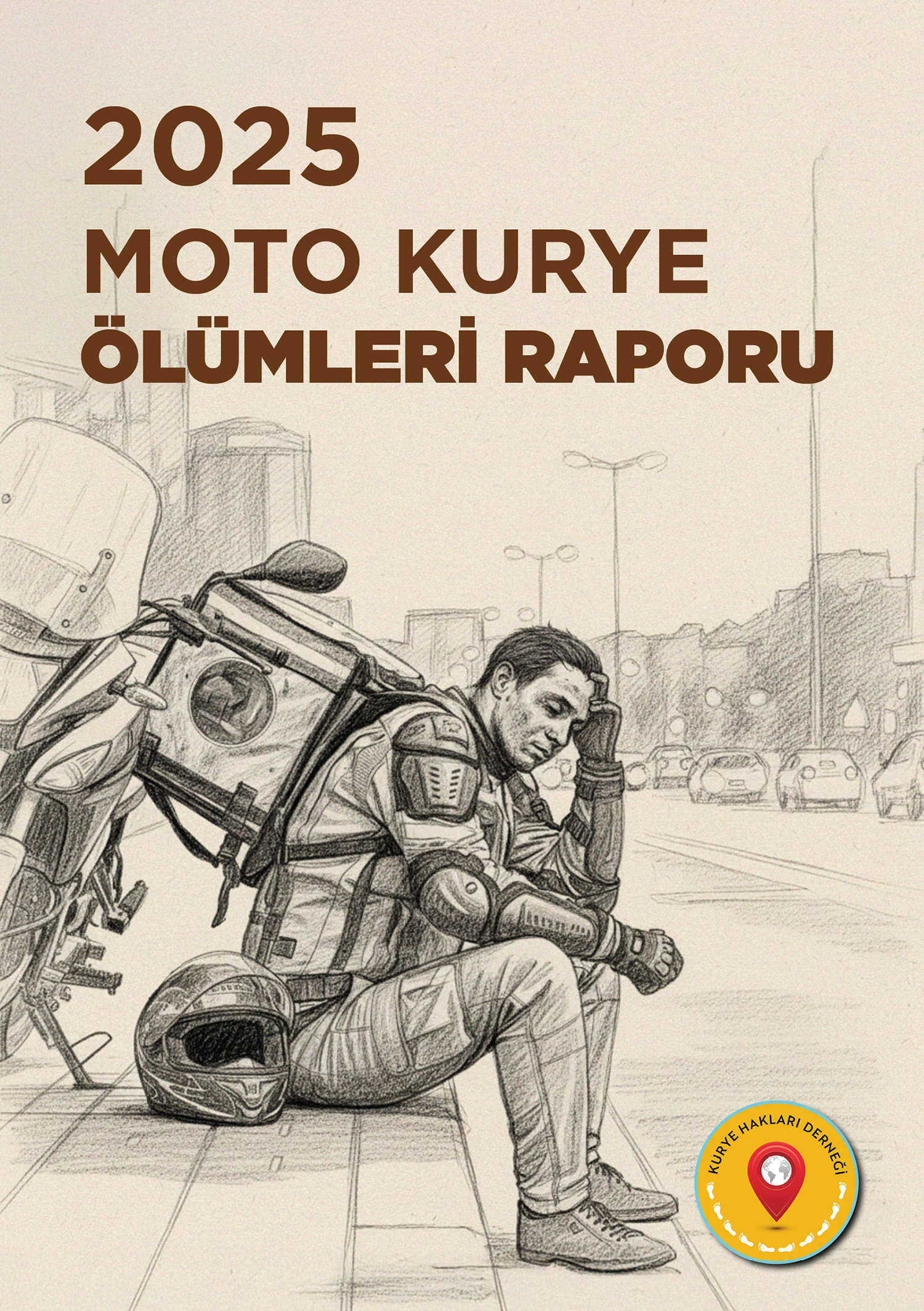
As the Delivery Worker Rights Association, we have continued to document the deaths of motorcycle couriers in Turkey, as we did last year. While we recorded at least 58 courier deaths last year, this year we have identified at least 68. This increase highlights the ongoing serious problems related to occupational safety and health in the sector. We publish this report to draw attention to these issues, contribute to examining the factors causing courier deaths, facilitate necessary regulations and precautions, and fundamentally advocate for the value of human life.
Although the report in your hands focuses on motorcycle courier deaths, it is important to note that the factors contributing to these fatalities also impact workers’ mental, physical, and emotional well-being daily. Unsafe working conditions endanger their health and lead to numerous diseases. Additionally, these deaths profoundly affect the families and colleagues of the workers, causing significant emotional distress and disruption in their lives.The section “Overview of Motorcycle Delivery Worker Fatalities” emphasizes the need to recognize that
every courier struggles to survive while facing numerous challenges to “bring home the bread.” Each courier has a life, dreams, and a future. This section provides data on the 68 couriers who died while working in 2023, detailing their ages, the timing and locations of their deaths, as well as the months, seasons, and companies they worked for. It highlights critical issues such as extremely long working hours, harsh weather conditions, insufficient and low-quality equipment, speed-based bonus systems, payment per package, and low wages. Additionally, it notes that the number of platform delivery workers who have died while working is approaching the number of couriers employed by individual restaurants.
In his article “Precarious Workers in the Extremely Hazardous Sector: Moto Couriers,” Occupational Safety Specialist Deniz İpek examines why motorcycle delivery work, despite its precarious conditions, is not classified as a ‘highly dangerous profession’. The article highlights that existing laws fail to support the establishment of Occupational Health and Safety Councils or collective worker representation. İpek underscores the urgent need for workers to organize and, through their representatives, oversee the implementation of existing laws and advocate for new legal protections to safeguard worker health and prevent severe injuries and fatalities.
The report focuses on two motorcycle couriers who were also students and died before reaching their thirties. Berna Özgül, whose brother Samet Özgül was stabbed to death by three individuals in traffic in Ankara, provides an in-depth account of her family’s quest for justice. Eylem Çalışkan and Taylan Deniz Yıldırım, cousins of Tevfik Arayıcı—who was killed in a minibus accident in Karabük—shed light on the working conditions that led to his death, following his recent social media posts before his passing.
Mesut Çeki’s article, “What Do Their Fellow Workers Do When a Motorcycle Delivery Worker Dies?”, explores how couriers have expressed their suffering, anger, and responses to the increasingly visible fatalities among motorcycle couriers over the past three years. The piece reflects on press statements made under the slogan “We Don’t Want to Die” and the memorial convoys held at funerals. It highlights the couriers’ struggles to mourn and assert their right to life, emphasizing their growing intolerance for the hazardous conditions that lead to their deaths.
The “Conclusion and Recommendations” section summarizes the duties and responsibilities assigned to various actors, as detailed in the previous year’s report, and outlines the necessary measures, oversight, and regulations needed to prevent further courier deaths.
Downloader PDF: 2023-Repor-On-Motorcycle-Delivery-Worker-Fatalities-In-Turkey.pdf

